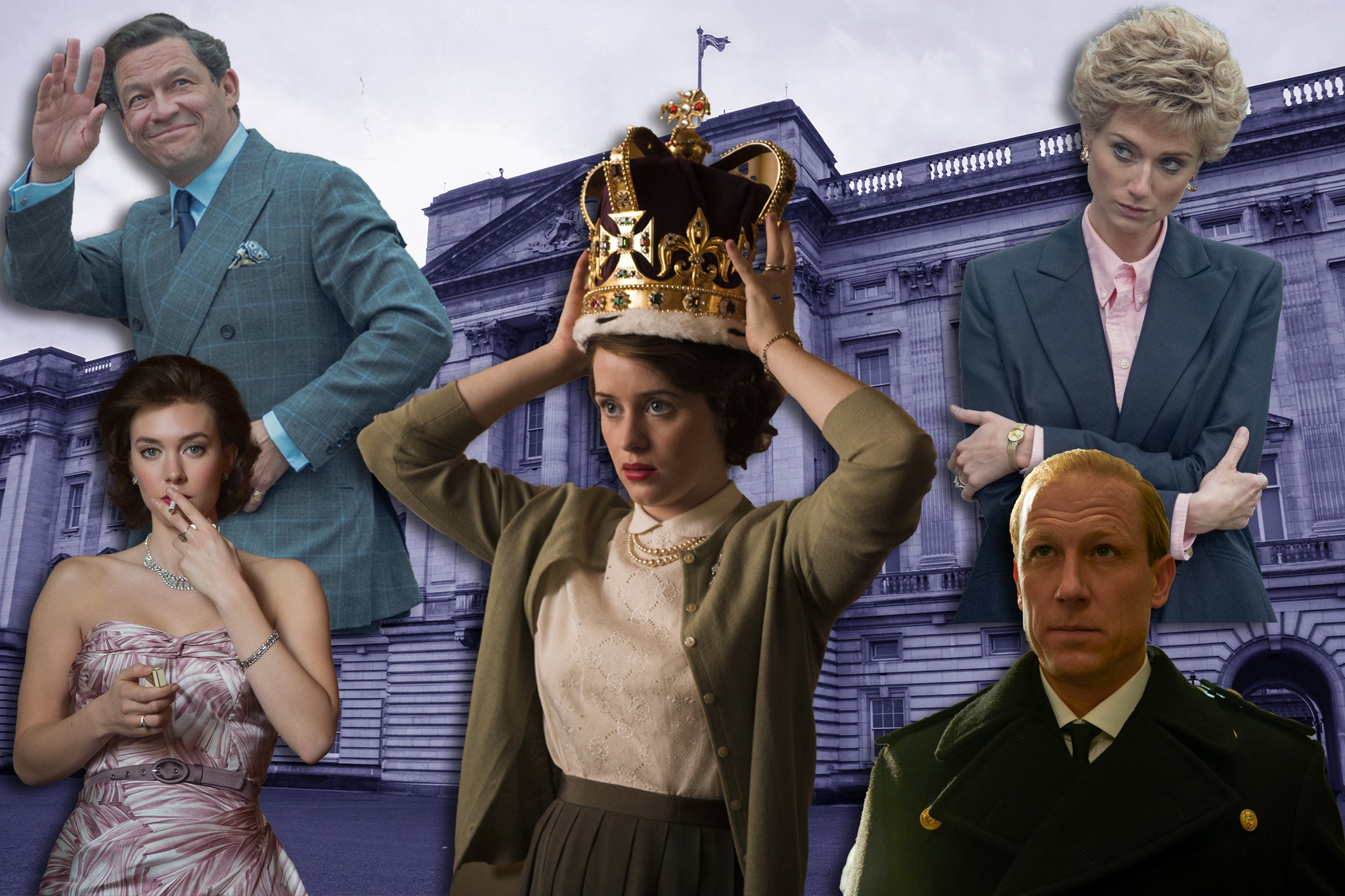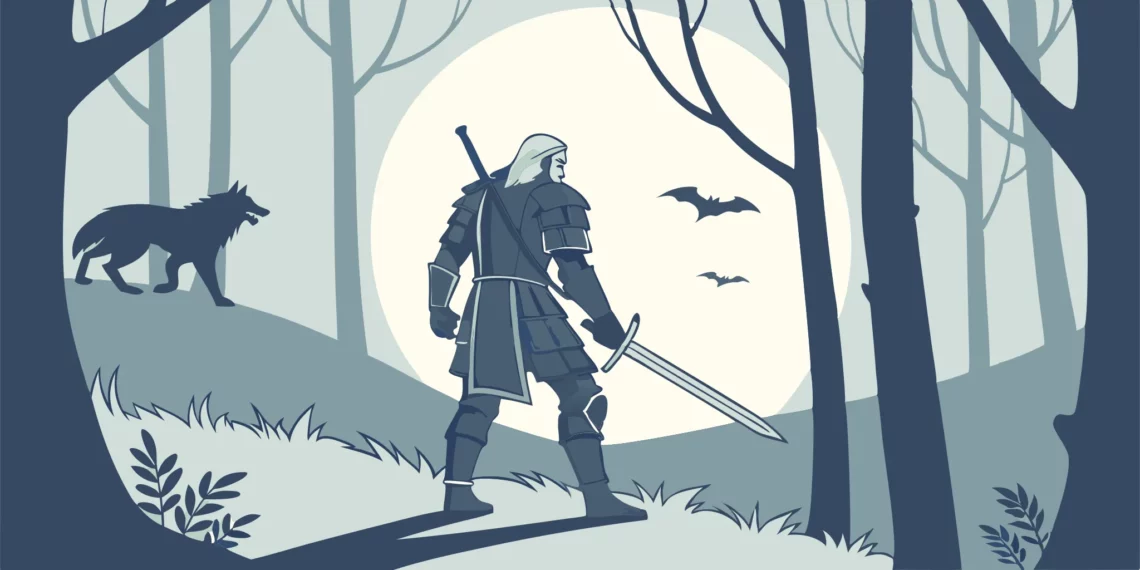
Table of Contents
Movies & TV- In the vast landscape of entertainment, it can sometimes feel overwhelming to choose what to watch next. With an ever-growing list of content available at our fingertips, the search for something that will truly captivate and immerse us is an ongoing quest. Whether you’re a movie aficionado or a TV series enthusiast, there are certain gems that promise not only to entertain but also to keep you glued to the screen. Below are 7 must-watch movies and TV shows that will keep you hooked from the opening scene to the final credits.
1. Breaking Bad: The Alchemy of Crime

Breaking Bad, the American crime drama series created by Vince Gilligan, has become a cultural phenomenon since its debut in 2008. With its gripping plotlines, morally complex characters, and masterful storytelling, the show’s exploration of transformation and power dynamics has captivated millions of viewers around the world. At its core, Breaking Bad is not just a tale of crime but an intricate alchemical process where the ordinary, in this case, a high school chemistry teacher, turns into something far darker.
The Catalyst of Change
The story begins with Walter White, a mild-mannered chemistry teacher in Albuquerque, New Mexico. Diagnosed with terminal lung cancer, Walter’s decision to turn to manufacturing methamphetamine is driven by a sense of desperation. What starts as a seemingly rational choice to secure his family’s future soon spirals into a descent into moral chaos. His transformation from a docile teacher to a feared drug kingpin is an example of the alchemy of crime—taking something pure and turning it into something corrupt and dangerous.
Walter’s journey is a slow and methodical descent. With each episode, the audience witnesses his growing complexity, as he sheds his former identity and embraces the darker aspects of his nature. The decision to enter the criminal world is, in his mind, justified by his desire to protect his family, but as the series progresses, the line between survival and ambition becomes increasingly blurred. The alchemical process of Walter’s transformation—his gradual shift from “Mr. White” to “Heisenberg”—is both fascinating and tragic.
The Chemistry of Crime
The concept of chemistry plays a pivotal role in Breaking Bad. As a chemistry teacher, Walter White’s expertise is fundamental to his success in the drug trade. His meticulous methods in producing the highest quality methamphetamine are emblematic of his calculated approach to crime. However, as Walter becomes more entangled in the drug world, his scientific knowledge begins to serve not only the creation of his product but also his ability to manipulate and control those around him.
The show’s exploration of science and crime is intertwined in a way that feels both grounded and symbolic. The process of turning chemicals into meth is paralleled with Walter’s moral disintegration. The very essence of chemistry—transforming elements into something else—mirrors Walter’s own transformation. What was once a humble, well-intentioned man is reshaped into a ruthless criminal mastermind, demonstrating how easily one can succumb to the allure of power and greed.
The Legacy of Breaking Bad
Breaking Bad has left an indelible mark on television and popular culture. Its success is not just a result of its compelling plot or unforgettable characters, but also its deep exploration of human nature. Walter White’s descent into darkness serves as a cautionary tale about the dangers of unchecked ambition and moral compromise. Through its meticulous pacing, unexpected plot twists, and intricate character development, Breaking Bad has redefined what is possible in the world of TV drama.
In conclusion, Breaking Bad: The Alchemy of Crime encapsulates a profound narrative about the lengths to which a person will go to preserve their sense of dignity and power. It examines the fragility of morality, the consequences of one’s choices, and the devastating effects of a man’s transformation into something he never intended to become. This show is a masterclass in storytelling, proving that crime, like chemistry, can alter the very fabric of one’s identity.
2. The Crown: A Royal Saga

The Crown, a historical drama series created by Peter Morgan, brings the majestic yet often tumultuous world of the British monarchy to the small screen. Spanning multiple decades, the show chronicles the reign of Queen Elizabeth II, capturing both the grandeur and personal struggles that accompany her role as the head of the British Empire. With its meticulous attention to detail, The Crown delves into the intricate balance of power, tradition, and personal sacrifice that defines the life of a monarch.
The Weight of the Crown
At the heart of The Crown is the portrayal of Elizabeth II, a woman who ascended to the throne at a young age and was thrust into a world of political intrigue, royal expectations, and personal turmoil. The series elegantly captures the immense weight of the crown, which often forces Elizabeth to make difficult decisions that challenge her own desires and values. From her strained relationship with her sister Margaret to the countless diplomatic crises she must navigate, the portrayal of Elizabeth’s evolution as both a leader and a person is nothing short of mesmerizing.
What makes The Crown so compelling is its ability to humanize the monarchy, allowing viewers a glimpse into the complex emotions behind the public façade. While the regal setting and lavish costumes transport the audience to a bygone era, it is the personal struggles and private moments that resonate most deeply. The show paints a portrait of Elizabeth as a leader bound by duty, even as she grapples with the immense loneliness and isolation that often accompanies the throne.
A Tapestry of Characters
While Queen Elizabeth is the central figure, The Crown also introduces a host of memorable characters, each contributing to the intricacies of royal life. From Prince Philip’s struggle to assert himself within the royal family to Prime Minister Winston Churchill’s unyielding influence on British politics, the show masterfully weaves together the lives of those who surround the Queen.
Each character is portrayed with nuance, shedding light on the personal dilemmas that define their interactions. The casting choices, including Claire Foy, Olivia Colman, and Imelda Staunton as Elizabeth at various stages of her life, bring remarkable depth to the roles, capturing the essence of the monarchy’s evolution. Furthermore, the show doesn’t shy away from exploring the tensions and complexities within the royal family, particularly in the portrayal of Princess Margaret, whose rebellious spirit stands in stark contrast to Elizabeth’s sense of duty.
The Power of Political Drama
One of the most captivating aspects of The Crown is its ability to blend historical events with political drama. The series explores key moments in history, such as the Suez Crisis, the Apollo 11 moon landing, and the Thatcher years, all while examining their impact on both the monarchy and the British public. Through these events, The Crown delves into the intricacies of governance and the delicate dance between power and public perception.
What makes the political storylines so compelling is the way they highlight the tension between personal beliefs and political necessity. As a monarch, Elizabeth must navigate a delicate balance of public duty and private conviction. Her role as both a leader and a symbol of national unity often leaves her torn between opposing forces, making her decisions all the more profound and consequential.
A Masterpiece of Cinematic Excellence
From its stunning cinematography to its impeccable attention to detail in costume and set design, The Crown is a visual feast. The grandeur of Buckingham Palace, the intricacies of royal wardrobes, and the sweeping landscapes of Britain are captured with breathtaking beauty. This level of detail not only enhances the authenticity of the story but also underscores the sense of majesty that surrounds the monarchy.
Moreover, the show’s impeccable scriptwriting and performances elevate it to a level of artistic brilliance rarely seen in television. The ability to evoke both emotional depth and historical accuracy ensures that The Crown remains one of the most celebrated dramas of its time.
In conclusion, The Crown: A Royal Saga is much more than a mere recounting of history. It is a captivating exploration of power, duty, and the personal cost of leadership. Through its exceptional performances, historical accuracy, and nuanced storytelling, the series offers a profound look at the complex world of the British monarchy, revealing the human side of royalty that is often hidden behind the glimmering crown.
3. The Witcher: A World of Monsters and Magic

The Witcher, a fantasy drama series based on the book series by Andrzej Sapkowski, immerses viewers in a world where monsters lurk in the shadows, magic weaves through every corner, and human nature remains as treacherous as any creature. Set in the Continent, a land filled with ancient mysteries, political intrigue, and dark sorcery, The Witcher brings to life a sprawling narrative that explores destiny, the complexities of morality, and the eternal struggle between good and evil. The series is not merely a tale of heroism but a deep dive into a world teeming with moral ambiguity, where the line between monster and man is often blurred.
A Complex Hero
At the center of The Witcher is Geralt of Rivia, a mutated monster hunter known as a Witcher. His grey morality sets him apart from the typical hero; he is neither purely good nor evil but a character defined by his choices and the burdens he bears. Geralt’s supernatural abilities, acquired through rigorous trials and the consumption of elixirs, make him an unmatched warrior. However, his strength is tempered by his emotional struggles, often portrayed through his stoic nature and personal conflict.
What makes Geralt’s character so compelling is his internal battle. Though he is often seen as a cold-hearted killer, the series reveals his complex layers through his relationships with other key characters, including the powerful sorceress Yennefer and the innocent but strong-willed Ciri. Geralt’s struggles with the world around him—where right and wrong are often subjective—add depth to his persona, making him more than just a monster-slayer.
The Enigmatic World of Magic
The Witcher’s world is one where magic pulses in the veins of the land. From the seductive power of sorcery wielded by beings like Yennefer of Vengerberg to the cursed magic that ravages the land, The Witcher is rich with spells, potions, and creatures born of ancient sorcery. The presence of magic is not just an element of fantasy but an integral part of the world’s fabric. It affects everything, from the lives of common folk to the fate of kingdoms.
The series presents magic as a double-edged sword—an alluring force that offers power and knowledge but also carries grave consequences. The characters who wield it, particularly sorcerers and sorceresses, must grapple with its moral implications, often navigating a fine line between using their abilities for good or for selfish gain. This theme is explored most profoundly through Yennefer, whose pursuit of power and beauty contrasts sharply with her inner vulnerability.
The Monsters of the Continent
No fantasy world is complete without its array of monstrous creatures, and The Witcher delivers on this front in spectacular fashion. From grotesque fiends to terrifying beasts, the monsters Geralt faces are not just challenges to his survival—they are manifestations of the world’s darker aspects. These creatures, often born of magic or mutated by human hands, symbolize the fears and evils that plague the Continent.
However, The Witcher takes an unconventional approach to monsters, challenging the viewer to reconsider their understanding of what makes something a “monster.” Many of the series’ most terrifying creatures are not inherently evil but are products of their environment, cursed or created by human ambition. This nuance creates a world where the traditional hero’s journey is complicated by the moral dilemma of whether a monster is truly evil or simply misunderstood.
A Tapestry of Political Intrigue
Beneath the surface of The Witcher lies a world steeped in political turmoil. Kingdoms vie for control, alliances are formed and broken, and the specter of war looms over the Continent. Geralt often finds himself caught in the middle of this complex web, forced to navigate a political landscape where those in power often manipulate the common folk for their own gain. The series deftly weaves these elements of politics into the fabric of the narrative, highlighting the ways in which power and influence shape the world in which Geralt lives.
The politics of The Witcher are not merely backdrop; they serve to elevate the stakes of the story. The alliances and betrayals within the royal courts have direct consequences for Geralt’s actions, and the shifting tides of power impact his relationships with others. In many ways, The Witcher is as much about the human struggle for power as it is about the battle against monsters and magic.
The Enduring Legacy
The Witcher: A World of Monsters and Magic stands out as a unique entry in the fantasy genre, blending high fantasy elements with morally complex narratives. Through its exploration of fate, personal sacrifice, and the nature of good and evil, the series creates a world that is as dangerous and unpredictable as it is captivating. The monsters and magic may be fantastical, but the emotions and choices of its characters are undeniably human, making The Witcher a timeless saga that continues to captivate audiences worldwide.
4. Stranger Things: A Sci-Fi Thriller with Heart
Stranger Things is the perfect blend of 1980s nostalgia, sci-fi horror, and heartwarming friendship. Set in the fictional town of Hawkins, Indiana, the show follows a group of kids who encounter strange and terrifying phenomena related to a parallel dimension called the “Upside Down.” What makes Stranger Things stand out is its ability to blend supernatural horror with poignant coming-of-age moments.
The chemistry between the young cast, particularly Millie Bobby Brown as Eleven, brings a sense of genuine emotion to the show. While the series delves into government conspiracies and otherworldly creatures, it’s the friendships and loyalty among the kids that form the core of its appeal. With a perfect balance of suspense and emotion, Stranger Things keeps viewers on the edge of their seats, while offering a nostalgic trip down memory lane for fans of 80s pop culture.
5. Inception: A Mind-Bending Cinematic Experience
When it comes to mind-bending, high-concept films, few achieve the level of mastery found in Inception. Directed by Christopher Nolan, this 2010 sci-fi thriller explores the complex concept of “dream heists”—where skilled individuals infiltrate the subconscious minds of their targets. The film stars Leonardo DiCaprio as Dom Cobb, a thief with the ability to enter dreams and steal secrets, but who is haunted by the memory of his wife.
The movie’s layered narrative structure, coupled with stunning visual effects and a haunting score by Hans Zimmer, creates an immersive experience unlike any other. What sets Inception apart is its exploration of memory, guilt, and the boundaries between dreams and reality. The film’s ambiguous ending leaves room for endless interpretation, ensuring that Inception is a film that will keep you thinking long after the credits roll.
6. Money Heist (La Casa de Papel): A Thrilling Spanish Crime Drama
Money Heist (originally La Casa de Papel) is a Spanish crime drama that has captured global attention with its intense storytelling and captivating characters. The series follows a group of criminals who, under the guidance of their enigmatic leader known as “The Professor,” execute a meticulously planned heist on the Royal Mint of Spain. As the heist unfolds, the show explores themes of loyalty, betrayal, and resistance.
What makes Money Heist so addictive is its unpredictable plot twists and the depth of its characters. Each member of the heist crew is given a unique backstory, and the tension between them keeps the audience invested in their fate. The show’s pace, combined with its emotional stakes and clever narrative devices, ensures that viewers are hooked from the first episode to the last.
7. Parasite: A Dark Social Commentary Wrapped in Suspense
Bong Joon-ho’s Parasite is a cinematic masterpiece that blends dark comedy, suspense, and social commentary into a gripping narrative. The film follows the Kim family, who, in a desperate attempt to improve their financial situation, infiltrate the lives of the wealthy Park family, leading to a series of unforeseen consequences. What initially seems like a story of class struggle soon unravels into a dark exploration of inequality, greed, and deception.
Parasite offers a brilliant commentary on the social divide, highlighting the vast chasm between the rich and the poor. The film’s sharp satire, combined with its unexpected twists and superb performances, creates a movie experience that is as thought-provoking as it is thrilling. It’s a must-watch for those who appreciate films that challenge societal norms while providing an unforgettable cinematic journey.
conclusion
In conclusion, whether you’re drawn to intricate crime dramas, heart-pounding thrillers, or thoughtful social commentaries, these 7 must-watch movies and TV shows are guaranteed to keep you hooked. Each one offers something unique, from compelling narratives to unforgettable characters, ensuring that your next binge-watch will be an experience worth remembering. These stories have the power to immerse you in their worlds, challenge your perceptions, and leave a lasting impact long after the screen fades to black.